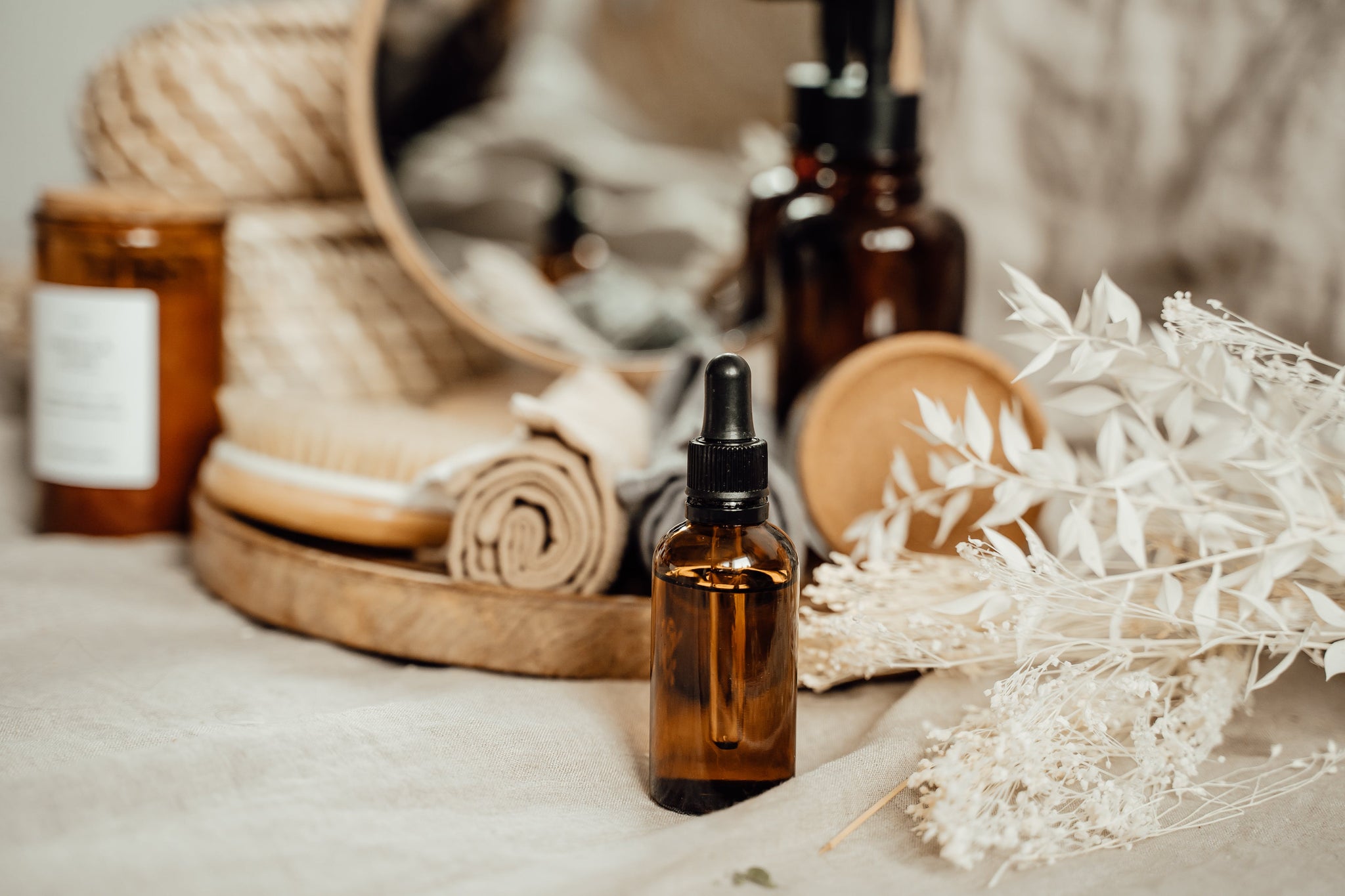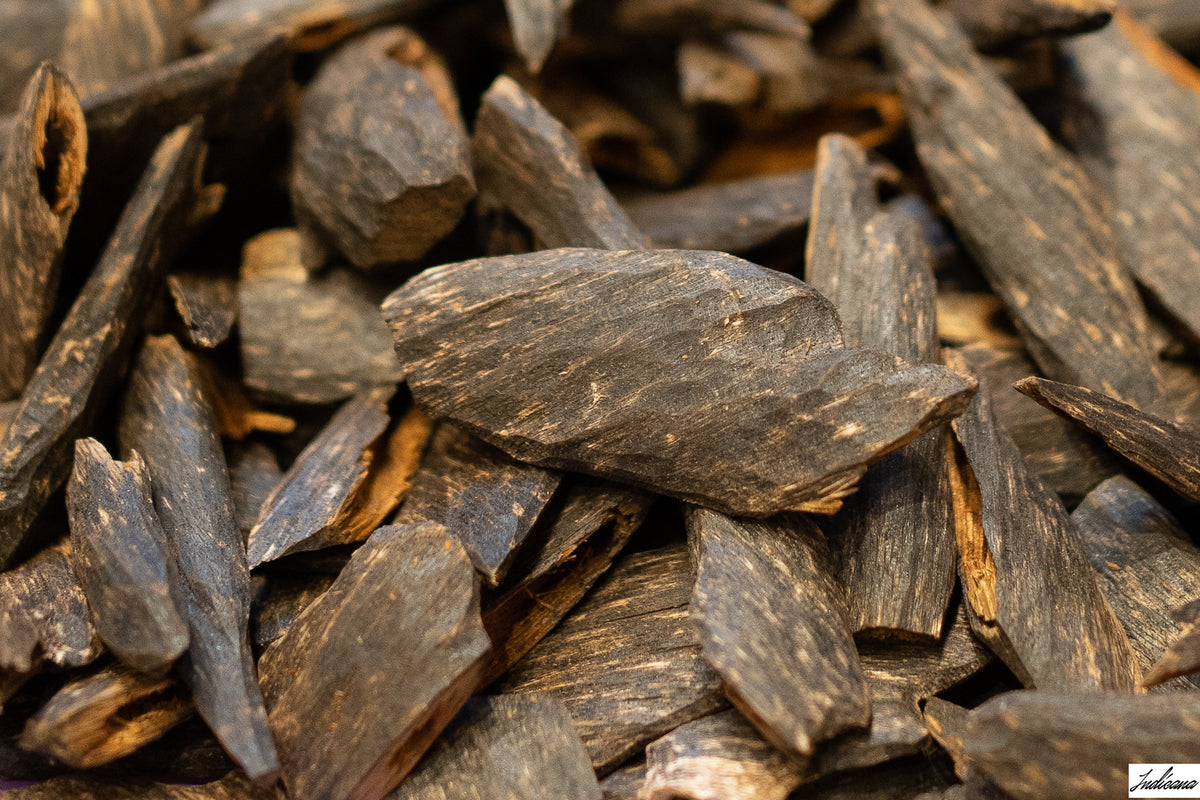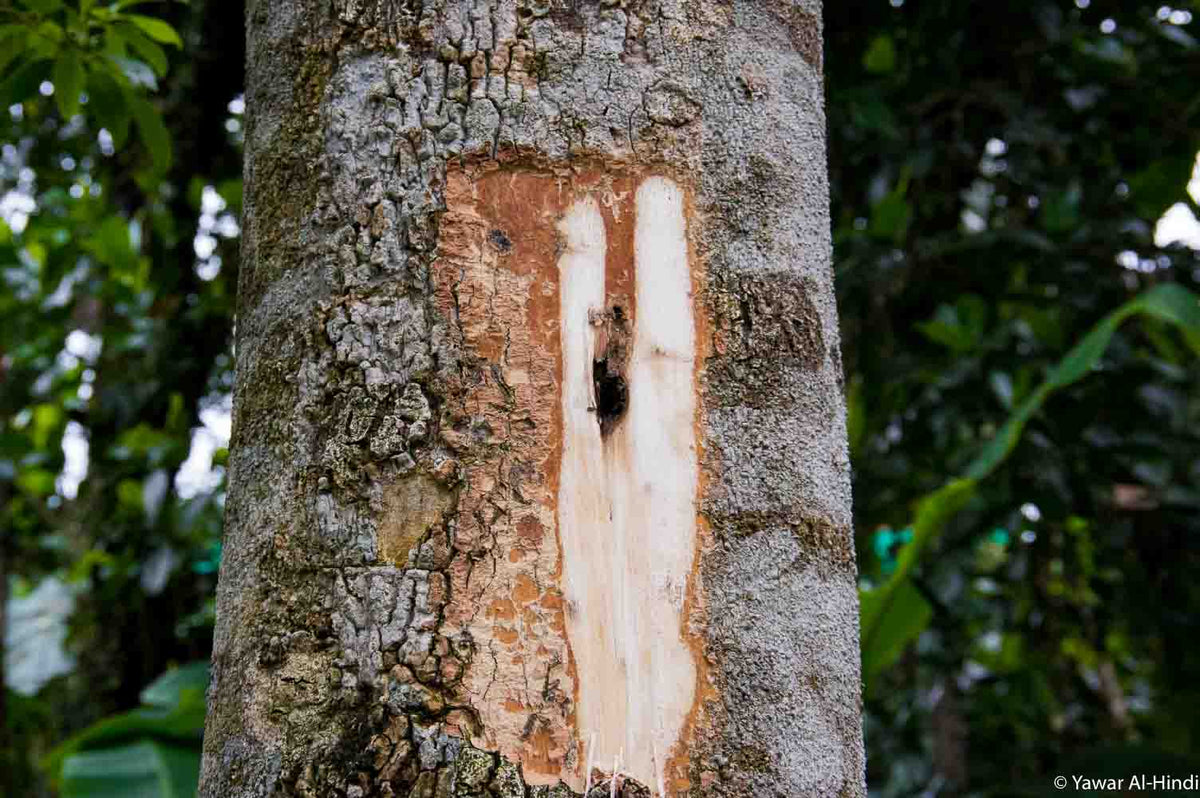
3 Scientific Research Studies That Prove Therapeutic Properties of Oud Essential Oil
3 Scientific Research Studies That Prove Therapeutic Properties of Oud Essential Oil
Agarwood essential oil when used in aromatherapy helps to treat anxiety, stress, depression and other nervous system disorders.
Depression and anxiety are complex neurological and psychological diseases that are rated as two of the most severe health problems by the World Health Organization. These diseases have a high incidence and low diagnosis and treatment rates; however, anxiety and depression seriously affect the health of individuals.

Agarwood in Aromatherapy
In the world of aromatherapy, where scents play a pivotal role in relaxation, healing, and spiritual well-being, few essences hold as much mystique and reverence as agarwood oil. Derived from the resinous heartwood of the Aquilaria tree, agarwood oil has been prized for centuries for its rich aroma and therapeutic properties.
Agarwood is very popular for its therapeutic properties in all its forms: wood burned as incense, essential oil applied on skin and vapors of essential oil from diffusers.
In aromatherapy, agarwood oil is celebrated for its wide-ranging therapeutic benefits. Its rich, earthy scent is believed to promote relaxation, reduce stress, and induce a sense of calm. Furthermore, agarwood oil is reputed to have antimicrobial, anti-inflammatory, and analgesic properties, making it a versatile tool in holistic wellness practices. From alleviating headaches and muscle tension to supporting meditation and mindfulness, agarwood oil offers a multifaceted approach to holistic healing.
Science Behind the Therapeutic Properties of Oud:
Agarwood has also been widely used as a medicine for tranquilizing and reducing excitement in East and South Asia for nearly two centuries. For example, the Compendium of Materia Medica, a pharmaceutical masterpiece written by Shizhen Li during the Ming Dynasty, recorded agarwood being used for treating forgetfulness and fright. However there have been only four studies that have reported the sedative-hypnotic function of agarwood.
Okugawa et al. reported that agarwood benzene extract reduced spontaneous motility and prolonged hexobarbital-induced sleeping time. Further phytochemical and pharmacological screening showed that jinkoh-eremol and agarospirol had a neuroleptic effect. (jinkoh-eremol and agarospirol are two major constituents of agarwood essential oil)
Agarwood essential oil, generally considered to have anticancer, anti-inflammation, and antioxidant activities also demonstrated a sedative effect on mice through inhalation. Takemoto et al. reported that agarwood essential oil could sedate mice by vapor inhalation.
Miyoshi et al. revealed that benzylacetone, released by heated agarwood, had sedative activity in mice. However, obtaining an exact dose-effect relationship is difficult with drug administration via inhalation. Furthermore, the mechanism of agarwood’s sedative-hypnotic function has not yet been reported. The few investigations on the sedative-hypnotic function of agarwood are largely dissymmetric with the various applications in large quantities. One of the main reasons for the lack of studies might be that the material is becoming hard to obtain from wild sources, and the price is too high.
3 Research Studies:
1. In a study conducted in Japan in the year 2007 [1], Agarwood essential oil was examined for their sedative activity using a spontaneous vapor administration system. It was shown that inhalation of agarwood oil vapor sedated mice. The main volatile constituents of the oil were found to be benzylacetone [agarwood oil from a Hong Kong market (1)], or α-gurjunene and (+)-calarene [agarwood oil made in Vietnam (2)].
Sleep disorders, like insomnia, are a growing mental health problem, affecting the quality of life and frequently causing significant functional impairment. Benzodiazepines and benzodiazepine receptor agonists are the most widely used clinical controllers of sleep problems, which were introduced into clinical practice in the 1960s. Benzodiazepines and benzodiazepine receptor agonists act by binding to the benzodiazepine-receptor binding site of the type A γ-aminobutyric acid (GABAA) receptor, increasing the activity of the inhibitory neurotransmitter GABA, and enhancing inhibitor outputs to all major cell groups in the brainstem and the hypothalamus that promotes arousal. However, long-term exposure to benzodiazepine usually results in many undesirable side-effects, such as dependence and tolerance. Therefore, substances that could contribute to inducing and improving sleep quality with fewer side-effects would be beneficial.
2. Related to above, in another study conducted in China in the year 2017 [2], it was comprehensively demonstrated that agarwood essential oil has sedative-hypnotic effects in a dose-dependent manner, which could be related to regulating the GABAergic system. The sedative hypnotic function of agarwood essential oil is in part, if not wholly, due to acting on GABAA receptors, promoting the gene transcription, and enhancing Cl- influx. This finding shows that agarwood essential oil might have promising utility in the prevention and treatment of sleep disorders.
3. A study conducted in China in 2023 [3] suggested that agarwood essential oil displays anxiolytic and antidepressant effects. Behavioral evaluation further confirmed that agarwood essential oil not only significantly inhibited the anxiety of mice as assessed by LDET and OFT, but also exerted a significant antidepressant effect by decreasing the immobility time of mice as determined using TST and FST. In summary, the results indicated that agarwood essential oil may represent a potential treatment of anxiety and depression by regulating the homeostasis of the Glu-GABA system.
Contemporary Applications:
In modern aromatherapy, agarwood essential oil is prized for its ability to enhance emotional well-being and spiritual awareness. It is often used in diffusers, massage oils, and perfumes to create a serene ambiance and evoke a sense of tranquility. Many practitioners also incorporate agarwood essential oil into meditation practices, rituals, and energy work to deepen their connection with the self and the universe.
Conclusion:
While current scientific research has largely confirmed what was believed and practiced in the field of therapeutic benefits from agarwood in aromatherapy, however it is still an ongoing research which is likely to reveal and confirm many more benefits for human health and well being. Agarwood oil holds a cherished place in the world of aromatherapy, captivating the senses with its enchanting aroma and offering a myriad of therapeutic benefits. From ancient rituals to modern wellness practices, agarwood continues to inspire awe and reverence across cultures. As we immerse ourselves in the fragrant depths of agarwood oil, let us tread lightly, honoring its preciousness and nurturing a deeper connection with nature and ourselves.

References of Research Studies for Detail Reading:
- Sedative effects of vapor inhalation of agarwood oil and spikenard extract and identification of their active components.
- Agarwood Essential Oil Displays Sedative-Hypnotic Effects through the GABAergic System.
- Agarwood essential oil inhalation exerts antianxiety and antidepressant effects via the regulation of Glu/GABA system homeostasis.
Disclaimer:
The information provided in this article is intended for educational and informational purposes only. It does not constitute medical advice, diagnosis, or treatment. Readers are advised to consult with qualified healthcare professionals for personalized medical guidance tailored to their individual circumstances.
The views and opinions expressed in this research paper are those of the authors and do not necessarily reflect the official policy or position of any affiliated institutions or organizations.
While every effort has been made to ensure the accuracy and reliability of the information presented, neither the authors nor any affiliated entities make any representations or warranties, express or implied, regarding the completeness, reliability, or suitability of the content for any particular purpose. Therefore, the authors and affiliated entities shall not be held liable for any direct or indirect damages arising from the use of or reliance on the information provided in this research paper.
Furthermore, this research paper may contain references to specific products, treatments, or medical interventions. Such references are for illustrative purposes only and do not constitute endorsements or recommendations. Readers are encouraged to conduct their own research and consult with healthcare professionals before making any healthcare decisions or implementing any interventions discussed in this paper.
Readers are also reminded that medical knowledge is constantly evolving, and new research findings may supersede or alter the information presented herein. Therefore, it is recommended to stay updated with the latest medical literature and guidelines.
By accessing and reading this research paper, readers agree to indemnify and hold harmless the authors, affiliated entities, and any contributors against any claims, damages, or liabilities arising from the use of or reliance on the information provided herein.
Leave a comment
Also in Oud Info | About Agarwood | Benefits

Oud - The Most Expensive Perfumery Ingredient on Earth




Yawar Saeed
Author
The visionary founder behind Indicana Oud, your premier destination for authentic oud products. With a deep-rooted love for oud and a commitment to authenticity, Yawar's mission goes beyond business; he seeks to enlighten and educate others about the multifaceted aspects of agarwood